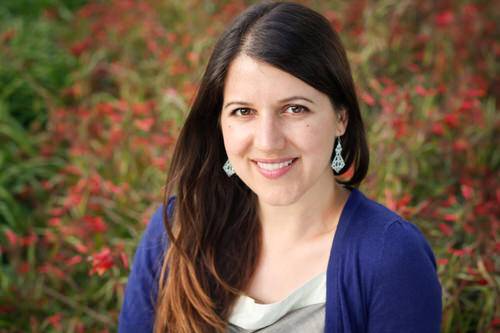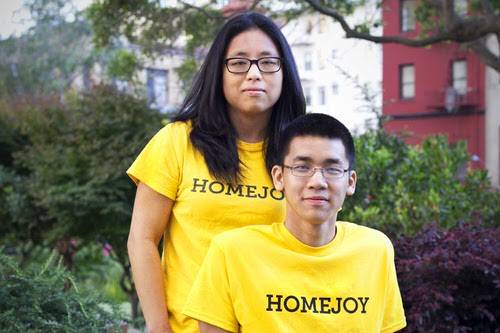This latest wave of funding for Internet startups has resulted in a slew of applications that seem to benefit the one percent: Limos via smartphone! On-demand wash-and-fold laundry! Cheeseburgers and shakes to your desk! Snail mail opened and scanned for you!
At the same time, concern over rising rents and perks like private buses to the office enjoyed by workers in the technology industry have riven the city of San Francisco, which many of these young companies call home.
Critics have asked what might happen if these people took the same energy now put to easing the chores of daily life for the wealthy and applied it instead to solving big, historical challenges—like healthcare, education, and homelessness.
It turns out that we don’t have to speculate. ReadWrite has identified six entrepreneurs who illustrate how talent, amplified by technology, can scale up a passion for helping others into meaningful change. (They are just exemplars—we know there are many more who may not get the spotlight, but deserve it.)
I talked with a few of these startup leaders who told me how their desire to create a better world is fueled by the same trends spawning so many other new ventures—mobile applications, crowdfunding, and systems that support e-commerce.
Rose Broome, Cofounder, HandUp

Rose Broome, cofounder of HandUp, decided to start her company after passing a homeless woman on the street who had only a thin blanket to stay warm on a particularly cold night.
In many urban areas, homelessness is a growing problem. San Francisco has a particularly visible homeless population—one that draws often-thoughtless criticism from newcomers.
HandUp helps homeless people in San Francisco by giving them the opportunity to solicit donations via text message or an online profile. The company issues members business cards to hand out with instructions for those who wish to help. When people send money, it’s given to the homeless individual in the form of credits they can then exchange for needed items through Project Homeless Connect.It’s not just the homeless community Broome and cofounder Zac Witte want to empower, but also local donors who might not understand the true plight of homeless citizens.
“It’s hard when you’re really far away from a problem to see it clearly. I understand why it feels uncomfortable,” Broome said. “We’re hoping we can help educate people. You see a lot of people on the site but would walk by those people and wouldn’t know they were homeless.”
In the first four months of the pilot program,, HandUp has registered 100 members who are homeless or at risk of losing their homes and raised $20,000 for them. Additionally, seven people, including one family, have achieved housing with the help of HandUp.
Chase Adam, Founder, Watsi

Watsi, a crowdfunding platform that helps people in third-world countries receive treatment for health-related issues, has funded 1,145 such cases.
Chase Adam, the service’s founder, said he got the idea for Watsi while serving in the Peace Corps in Costa Rica: “It’s crazy there is a Kickstarter for microfinance, why is there no website that can crowdfund healthcare?”
Adam told me his time in the Peace Corps inspired him to build Watsi, and although he and his cofounders had no connections in the startup world, the tech community rallied behind his company after he posted about it on Hacker News.
Watsi works with a network of hospitals and other medical organizations. When a patient enters a clinic with symptoms that meet Watsi’s criteria, the patient can opt in to the program, and as soon as they are approved, the care provider can treat them.
The average cost of a treatment is around $712, yet the average donation is $20—so it takes many contributors to fund a single patient. Watsi doesn’t wait for all the money to come in before funding a treatment.
“All of [the patients] get funded,” Adam said. “Because of the dynamics around healthcare and the severity of conditions treated, it wouldn’t be ethical to tell a patient you can put up your campaign and you might get funded or not. We tell our [patients] we’ll leave the profile on our site no matter what.”
The organization was launched in August 2012, and has the distinction of being the first nonprofit to go through Y Combinator, a popular startup program which offers funding and training for founders.
Gwendolyn Floyd, Cofounder, Soko

Gwendolyn Floyd, cofounder of Soko, commutes from an office in San Francisco to Nairobi—a trip which exposes her to the starkness of the digital divide and the insularity of startup culture.
“It’s interesting living in San Francisco and working in the social good space,” she said. “It’s innovative in a parallel way.”
Soko is a marketplace that connects online shoppers to makers of handmade jewelry in emerging communities in developing countries, well-removed from the epicenter of the digital world.
Floyd and her two cofounders, Ella Peinovich and Catherine Mahugu, have a history of working in countries like Afghanistan and Kenya. After realizing the potential the Internet had for artisans in these communities, they set up a website and partnered with local makers in different communities. The company now has an extended network of approximately 300 artisans.
Floyd said Nairobi can feel like the cutting edge of innovation, because they have far fewer resources than entrepreneurs in San Francisco do.
“[The artisans] leapfrog a lot of the restrictions of standardizations and technologies that we have to deal with in this part of the world,” she said. “It’s really interesting to bridge those two.”
Leo Seigal, Cofounder Prizeo

Leo Seigal and cofounders Bryan Baum and Andrej Pancik turned their business of running large-scale charity events for wealthy donors into a site that partners with celebrities to raise money for charities.
Prizeo leverages celebrity talent and the power of social media to encourage people across the world to donate to charity with the potential of winning contests. For instance, the most recent campaign is raising $250,000 for St. Jude Children’s Research Hospital. Anyone who donates gets a chance to win a private concert with singer Mariah Carey.
Prizeo works directly with charities, many of which already have celebrity spokespeople. Through Twitter and other social media outreach, the donations roll in.
Since launching in May 2013, Prizeo has raised over $3 million for charity, and Seigal told me it’s growing rapidly everyday.
“We have a couple [campaigns] coming up that will raise at least a million,” Seigal said.
There’s no prize quite like spending time with your favorite celebrity, as Prizeo has learned. Actor Will Ferrell, singer Justin Bieber, and Olympic swimmer Michael Phelps have raised money for various charities and rewarded donors with in-person meetings. But Seigal said his favorite campaign was Samuel L. Jackson’s one last June.
Adora Cheung, Cofounder, Homejoy

Adora Cheung, cofounder of the year-old home-cleaning company now operating in over 30 cities, decided to launch the nonprofit Homejoy Foundation.
According to Cheung, the idea behind Homejoy was to provide cleaners with work opportunities that had never existed before so they, in turn, could support their own home. The Homejoy Foundation is an extension of that mission, aiming to bring the idea of happier homes into the community.
The organization was launched late last year, and partners with other nonprofits to help veterans and military families. Most recently, the foundation made a large donation to a teen-focused camp for children who have lost a parent in war. So far, it’s given away $15,000—an impressive amount for a nonprofit backed by such a young company.
But it’s not just Cheung (pictured here with her cofounder and brother, Aaron Cheung), who is passionate about empowering the community. Homejoy employees also dedicate time and efforts to charity.
For example, people on the product engineering team help build the organization’s website, and other members of the team volunteer to reach relevant skills like how to apply for mortgages and fix things around the house, Cheung said.
“When you get employees to work on service projects, they learn team building and [other skills] that help the business,” Cheung said. “There are a lot of advantages to incorporating service initiatives into the for-profit business.”
Joshua Singer, Apps For Aptitude

Joshua Singer, a San Antonio, Texas-based high schooler, is on a mission with two of his classmates to fight illiteracy. Not just reading and writing, but coding illiteracy, too.
Apps for Aptitude developed a flashcards iPhone app that learns from your responses to help you memorize facts. This was the first app in a suite of applications the team is planning on creating to help students master academic skills. The group aims to send the profits from the applications to local illiteracy organizations.
“We tried creating coding tutorials that were relatively successful, but didn’t have enough bandwidth for organizations like Codecademy,” said Singer (pictured left, with cofounders Abhinav Suri and Canzhi Ye). “We wanted to help in a way that they weren’t able to, so we began organizing a hackathon.”
See Also: Meet Four Teen Hackers (And Another Even Younger One)
The three-day hackathon, scheduled for June 2014, brings students from across Texas to participate in workshops and learn programming skills.
“We had the idea to use the effort to code for the betterment of our community,” Singer said. “We want to create software to help the community, as well as generate revenue for the community, too.”
All photos provided by the companies





















